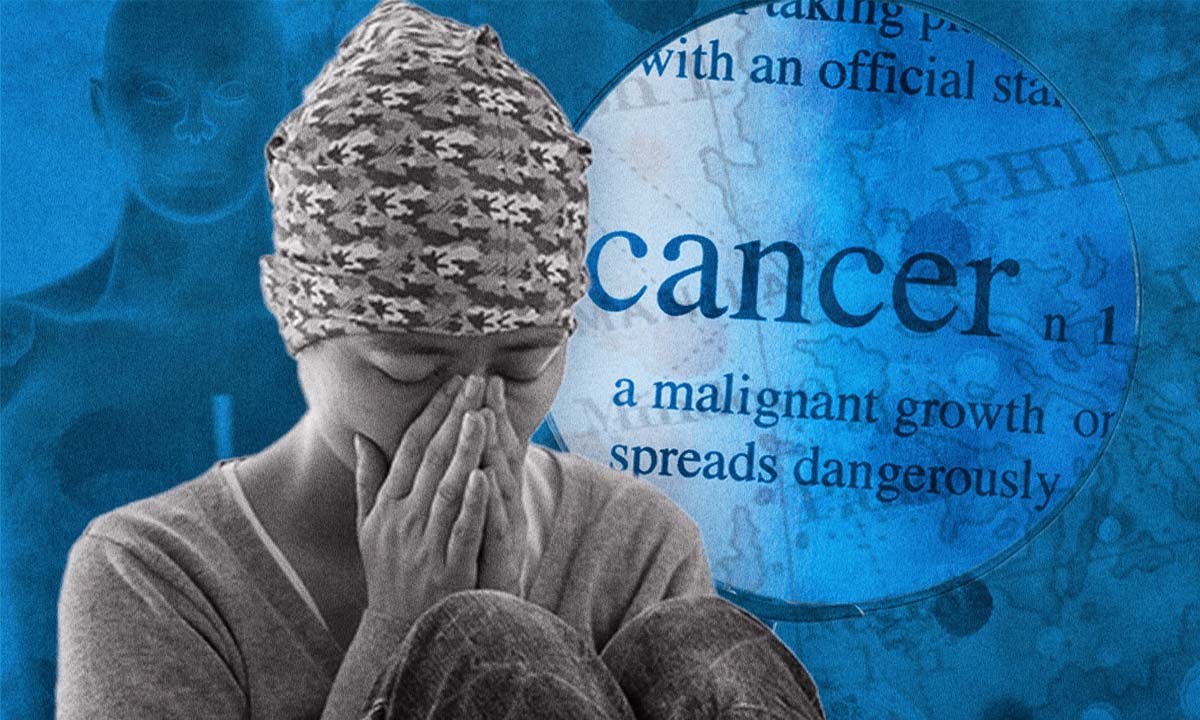(Second of two parts)
MANILA, Philippines—As medical advances and innovations find ways to make cancer treatable, a recent move to restore government funds for cancer is expected to bring new treatments to more cancer patients in the country.
In the Philippines, the government has started to offer a type of cancer treatment beyond chemotherapy called targeted therapy. According to the Philippine Cancer Society, this type of treatment is currently most often used along with chemotherapy.
Targeted therapy uses targeted drugs or medicines that work differently than standard chemotherapy drugs. Various medicines for many different kinds of cancer are already available locally.
In a recent statement, Dr. Marvin Mendoza, head of oncology section at the National Kidney and Transplant Institute (NKTI), announced that 23 public hospitals have started offering free targeted therapies for breast cancer patients who cannot afford the required 18 treatment cycles, which cost from P300,000 to P450,000.
However, only 200 patients will be accommodated nationwide for the free cancer treatment due to the limited budget for the treatment program.
READ: Targeted therapy makes waves as brightest hope for cancer treatment
In hopes of extending assistance and offering improved treatments to more cancer patients in the country, lawmakers recently pushed to restore and boost government allocation for cancer.
Boosted funds
From being excluded in the 2023 General Appropriations Act (GAA, Congress has restored the government funds for cancer to a total of P1.56 billion.
In a statement on February 5, Deputy Speaker and Batangas Rep. Ralph Recto said the line-item funding for two cancer funds in this year’s national budget was a “result of a multi-partisan, bicameral push.”
“[R]estoring the cancer fund in the national budget is one doctor’s order we cannot ignore. The cancer fund is not a tumor that must be excised from the budget. It is a treatment tool which, on the contrary, must be boosted,” said Recto.
Of the P1.56 billion that will be lodged under the Department of Health (DOH), P1.054 billion will subsidize cancer prevention, detection, treatment, and care, in line with Republic Act No. 11215 or the National Integrated Cancer Control Act—which aims to prevent cancer and improve cancer survivorship, and make cancer treatment and care more equitable and affordable for all.
The lawmaker said the fund will specifically finance the “procurement and delivery of cancer, supportive care and palliative care medicines covering the eight treatable cancer types.”
The remaining P500 million will go to the Cancer Assistance Fund (CAF), which will be used for cancer prevention, detection, treatment, diagnostics, and care for the eight priority cancer types identified by the DOH.
On top of the restored cancer funds, a joint memorandum circular outlining the guidelines for using the CAF released last year stated that P529.2 million worth of funds for cancer patients will remain valid until the end of 2023.
READ: Cancer assistance fund of P529.2M available until end of 2023 – DBM
Availing of CAF
Data from the Global Cancer Observatory (Globocan) registry showed that 153,751 new cases of cancer were recorded in the Philippines in 2020. Of those, there were 92,606 deaths reported.
However, despite this, 7 in 10 cancer patients in the country “drop out of treatment regimen” due to lack of funds, according to Recto.
“Filipino families are one cancer diagnosis away from bankruptcy,” he said.
To aid the underprivileged, poor, and marginalized Filipinos with proper cancer treatment and care, patients of the eight identified priority cancer types can avail themselves of CAF. These include patients diagnosed with:
- breast cancer
- childhood cancer
- gynecologic cancer
- liver cancer
- adult blood cancers
- head and neck cancers
- lung cancer
- prostate, renal, and urinary bladder cancers
To avail of the CAF, patients or their guardians are required to submit requirements to identified access sites where CAF services are made available. Among the requirements are prescriptions, treatment protocols, and medical abstracts, which shall first undergo evaluation prior to approval and availing of services.
The DOH explained that the CAF covers “outpatient and inpatient services including but not limited to diagnostics, therapeutic procedures, medicines, treatment and management services, and other care-related components of cancer.”
Other assistance offered
Recto admitted that state funds “to fight cancer are not enough, and way, way below the ideal.”
In the country, aside from the government’s cancer programs, several government and non-government organizations offer financial assistance for cancer patients. One of these, according to the Philippine Society of Medical Oncology, is the Philippine Health Insurance Corporation (PhilHealth).
Based on the information provided by PhilHealth, several benefit packages cover different types of cancer and cancer treatment based on the risk and type of treatment needed. The amount of benefit offered for various cancer-related packages ranges from P100,000 to P500,000.
Aside from financial assistance, other organizations offer patient support groups, which could help patients cope with the disease throughout the different phases of their cancer journey.
PH’s cancer center
Earlier this month, the National Economic and Development Authority (NEDA) Board—which is chaired by President Ferdinand R. Marcos Jr.—approved the construction of a P6-billion Cancer Center in Manila.
The 15 to 20-story building is going to be built within the UP-Philippine General Hospital (UP-PGH) Campus in the City of Manila. With a lot area of 3,000 square meters, it is expected to have 300 hospital beds—including 150 charity beds and 150 private beds—as well as an area for three linear accelerator (LINAC) bunkers.
The Cancer Center will offer various cancer treatments, including radio oncology (radiotherapy), imaging, and medical oncology. It is also seen to be a “center of studies” and helps with teaching and research activities.
“The Cancer Center aims to provide cancer patients in the whole country the most advanced treatment possible,” Dr. Jorge Ignacio, oncologist and chair of the Cancer Institute of UP-PGH, told INQUIRER.net.
“It is expected to attract many clinical trials and research and provide the best training for new specialists,” he added.
